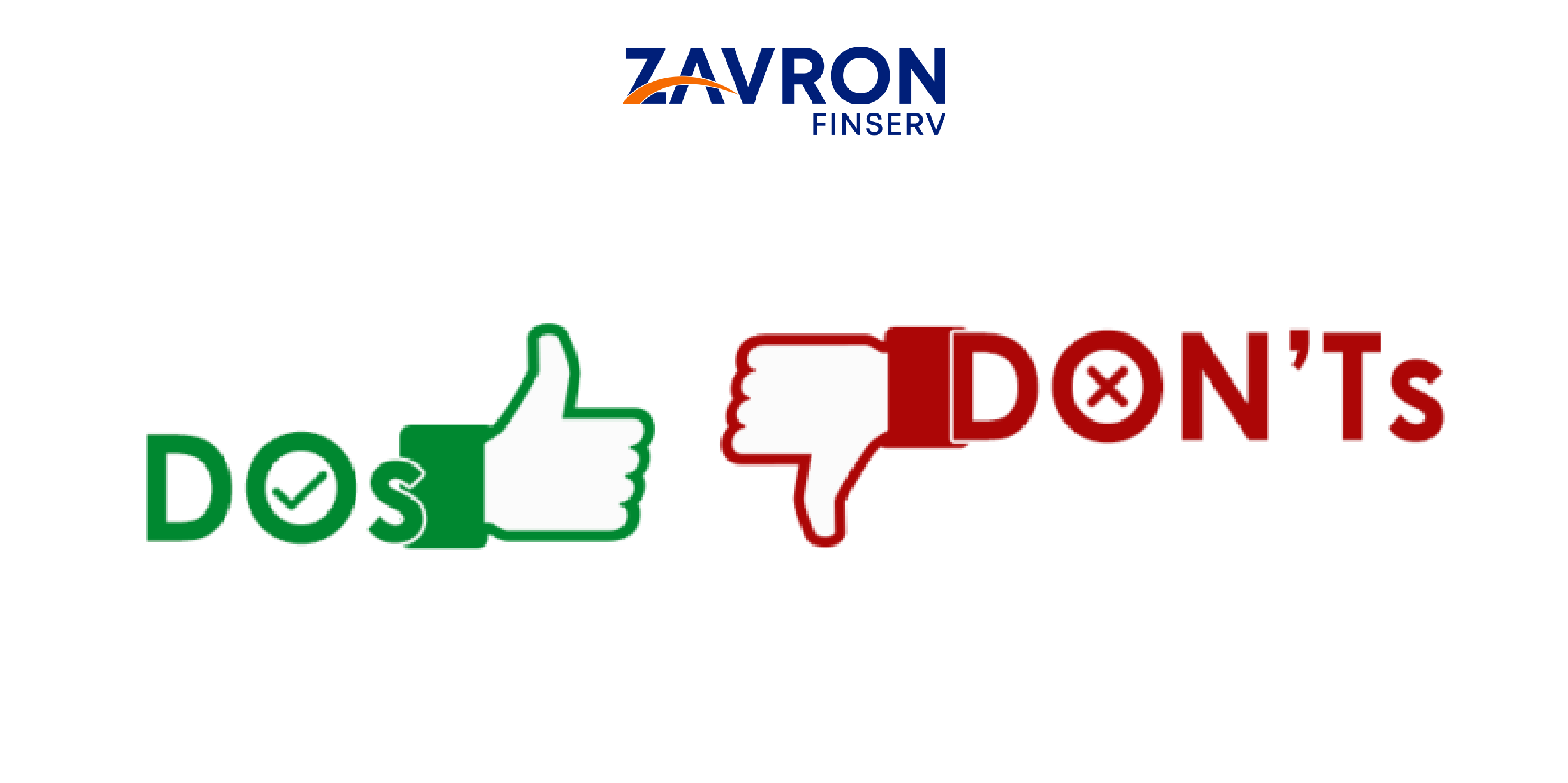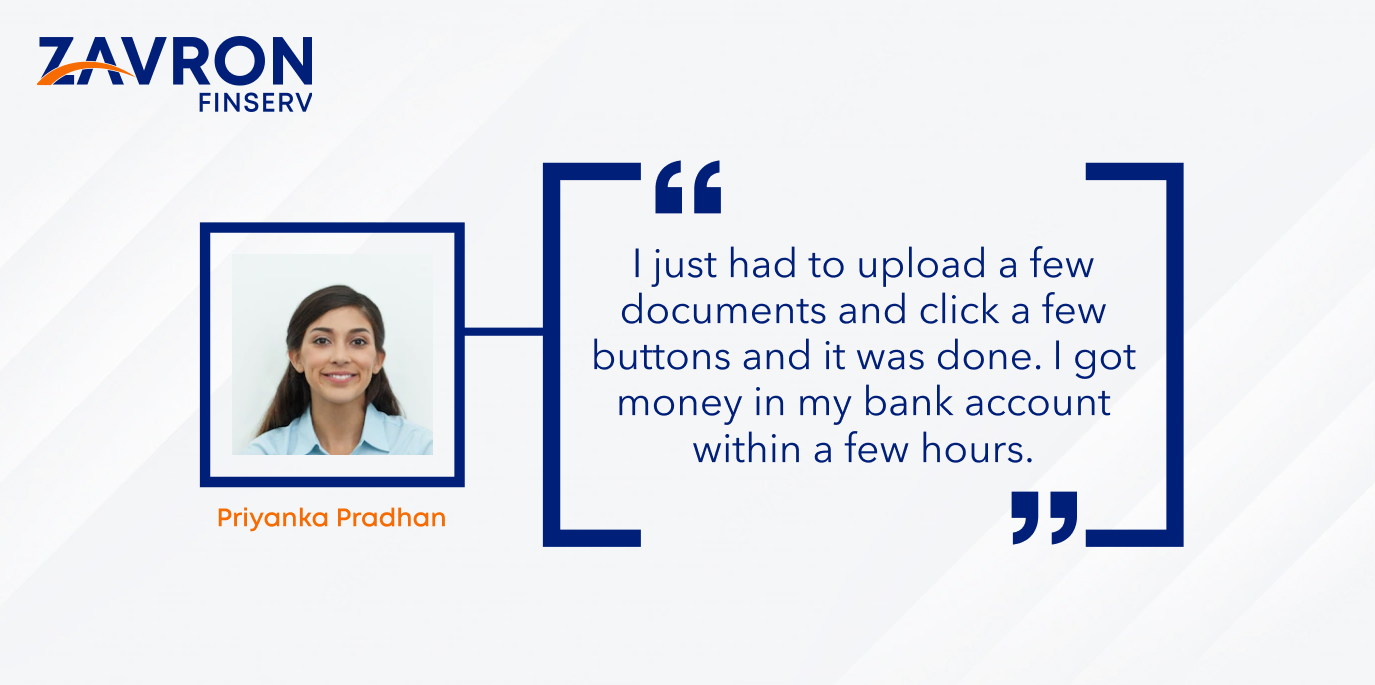
Sep 14, 2020 ●10 min read
Do’s And Don'ts While Applying For A Loan
Loans are an extremely helpful monetary tool to meet the financial down curves stopping you from achieving your financial or other goals. However, loan approval and eligibility depends on your credit risk assessment done by the lender, based on your credit score, income, job profile, etc. You must choose an optimal lender as tenures, EMIs and interest rates vary widely.
Here is the list of some crucial steps you should see before your final loan application.
Fetch your credit report before making your application
While evaluating your loan application, lenders assess your trustworthiness by checking your credit report. Usually, those with a credit score of 750 and higher have higher possibilities of loan approval at a lower rate of interest than those with lower score. Lower score candidates are either denied loan approval or granted approval at higher interest rates.
Fetching your credit report before creating the loan application will permit you to take corrective measures to enhance your credit score. It'll additionally assist you establish any wrong information or clerical errors, if any, on the part of the lender or credit bureaus knocking down your credit score. A corrected credit score will increase your credit score and thereby, your loan eligibility.
Prior fetching of your credit report may additionally get you pre-approved loan offers through the credit bureaus or the online monetary marketplaces based on your credit score, income, job profile, and so on. These pre-approved loan offers may provide you with a good idea regarding your loan eligibility for additional comparison.
Ensure to check loans from various lenders
Lenders approve loan applications and set their interest rates primarily on the premise of their value of funds and credit profiles of loan individuals. This might result in the rate of interest for a similar loan kind to vary widely across the lenders. Hence, it's vital to check the loan offers from a good spectrum of lenders to land with the most effective loan offer.
A loan applicant ought to first approach his existing bankers and lenders, if any, on the availability of the loan he's seeking and its features. Then, he should visit on-line lending marketplaces to compare the various loan offers offered by alternative lenders on the premise of his monthly income, credit score, job profile, employer’s profile, and so forth. The final application should be made with the lender charging all-time low interest rate, fees, etc for the optimum loan tenure and margin money.
Prefer a loan tenure on the basis of your repayment capacity
Loan tenure plays an important role in deciding your EMI outgo and total loan value. Ideally, choice for loan tenure should be supported by your repayment capacity. Shorter loan tenures lead to higher EMIs and lower interest cost and vice versa. Thus, opt for a shorter loan tenure if you can pay your EMIs on time while not sacrificing your contributions to your essential economical goals. In case you cannot, select an extended loan tenure for lower EMIs.
Avoid loan applications with multiple lenders within a brief span of time
Each time you submit a credit application, lenders fetch your credit report from the credit bureaus to judge your creditworthiness. Such credit report requests initiated by the lenders are thought of as laborious inquiries, every of which can lead the credit bureaus to cut back your credit score by a couple of points. Hence, creating loan applications with multiple lenders within a short span can considerably reduce your credit score, thereby reducing your loan eligibility.
Instead, visit online financial marketplaces to make loan enquiries across a good spectrum of lenders. These marketplaces too will fetch your credit report back to offer you the loan offers, credit report requests by them are thought of as soft enquiries and doesn't cut back your credit score.
Ensure to consider your new EMI in your emergency fund
Financial emergencies like medical illness, job loss, etc return unannounced. These emergencies will disrupt your future financial gain and money flows and thereby, your future loan reimbursement capacity. Failure to make loan repayments by the due date won't solely cost hefty penalties, it'll also adversely impact your credit score. whereas you'll be able to redeem your investments to make loan repayments, doing therefore can adversely impact long run financial health.
The best way to steel oneself against such future uncertainties is create an applicable back-up in the kind of an emergency fund. This fund ought to be a minimum of sixfold of your monthly obligatory expenses as well as your existing and new loan EMIs. Hence, as soon as you begin planning for a new loan, attempt at the same time to increase the emergency fund’s amount by at least six times of the estimated EMI of the new loan.

LICENSED BY RBI
ZAVRON FINANCE PVT LTD
RBI License no.:- N-13.02268
CIN:- U67100MH2017PTC292183






